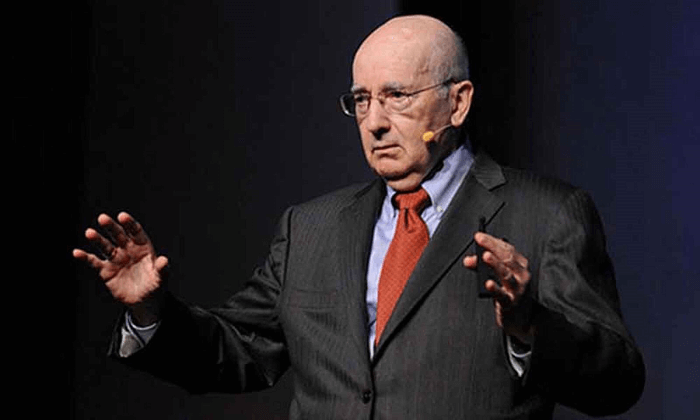Definition of Marketing by Philip KotlerMarket
Philip Kotler states, "A market consists of all the possible consumers sharing a certain need or want who would be ready and able to participate in trade to fulfill that need or desire." Various market structure types
Buyer and seller combinations make form a market. The most defining feature of all buyers and all sellers is their extreme diversity. They may be separated into several categories even though they share some characteristics. These groups differ in terms of the type and size of the market, the nature, and size of purchases, the purpose of purchases, etc. There are four types of markets that we can study. They are:
1. Consumers' Markets
The market is reasonably large. It comprises everyone who has an unmet need. The number of purchasers is substantial. So far, since their purchases are made for their use and not for resale or further manufacturing, people only make small purchases. There is no intimate interaction between customers and the company due to the high number of customers. In addition to the enormous numbers, the purchasers were geographically dispersed. The consumer market extends to the entire world. There are a lot of intermediaries in the supply chain because there are a lot of buyers and because these purchasers are dispersed geographically. The amount of purchase is small, and the consumers have various choices. As a result, they react strongly to price changes. Price elasticity describes the consumer market's demand. 2. Business Markets
Any businesses that purchase items and services utilized in creating goods or services sold, rented, or provided to others are included in the business market. Because of this, the commercial market does not buy items for personal use. They are two types:
3. Government Markets
Government organizations are big buyers of products and services in most nations. Government markets are essential, particularly in emerging countries like India, where the government undertakes most infrastructure development and production. The government will consider a supplier's higher quality or track record of meeting deadlines. They frequently choose home providers over international ones. Government agencies need a lot of paperwork from their suppliers. As a result of the heavy paperwork and complexity, decisions are delayed. The number of rules that must be obeyed is too great. The government market is rife with red tape. They make frequent significant purchases. Cost or pricing is quite essential. Advertising emphasizing product distinction and personal selling has less impact on winning bids. 4. Institutional Markets
Schools, hospitals, nursing homes, jails, and other institutions required to offer products and services to those under their responsibility make up the institutional market. Low budgets and captive customer bases are characteristics of many of these enterprises. For example, hospitals must choose the type of food to purchase for the patients. Profit is neither the primary goal of this purchase because the food is given to patients as part of the whole package of services, nor is cost containment the primary goal of this purchase because subpar cuisine would make patients complain and damage the hospital's reputation. The hospital's buying representative is tasked with looking for institutional food suppliers whose quality meets or exceeds a particular minimal level and whose costs are reasonable. Several food sellers established distinct divisions to appeal to institutional customers. Similarly, in the example of a bank, the stationery for the forms and dockets are acquired as part of the service package provided, not with an eye towards profit. Four Major Forms of Consumer Market
Consumer markets are those for goods and services individuals purchase for their own or family use, such as automobiles, LED TVs, refrigerators, toothpaste, ice cream, apparel, and air travel. Through their product and service offerings, businesses in the consumer market try to determine and satisfy the consumer's needs. They also try positioning the products in the customers' minds to increase awareness and purchase prices. The following categories apply to consumer markets 1. FMCG: Fast-moving consumer goods
Fast-moving consumer goods, or FMCG as they are commonly called, typically contain a wide range of regularly purchased items, including toothpaste, shampoo, soap, cosmetics, hair oil, and detergents, as well as other non-durables such plastic goods, CFL bulbs, paper & stationery, and glassware. Chocolates, medications, packaged foods, and soft drinks can also be considered FMCG. These products have an enormous volume potential but a low unit value; thus, regular repurchases are necessary. India's market was at Rs. 2.2 lakh crore in 2013. Hindustan Unilever Limited (HUL), ITC, Nestle India, Amul, Dabur, Asian Paints, Cadbury India, Britannia Industries, Procter & Gamble, and Marico Industries are the top 10 FMCG firms. Limited is a company Benckiser, GSK, Pepsi, Coke, Himalaya, Bajaj, Godrej, and other leading businesses are also in this sector. Fast Moving Consumer Electronics (FMCE) is a new subgroup of FMCG that includes innovative electronic devices, including MP3 players, mobile phones, and digital cameras. Compared to other electrical items, they need to be changed more regularly. 2. Consumer Durables
Consumer durables, on the other hand, are limited-volume items with high unit costs. It is sometimes referred to as Brown Goods or White Goods. Brown goods include Televisions, DVD players, home theatres, camcorders, game consoles like the Microsoft ZBox 360, Sony Playstation, Nintendo WI, and personal computers. In contrast, White goods include refrigerators, freezers, washing machines, dishwashers, and microwaves. When a product is not categorized as a white or brown good, it is referred to as a white good overall. This category now includes domestic electronics products formerly classified as brown goods. 3. Soft Goods
Compared to FMCGs and consumer durables, soft products are often more expensive. Due to the need for a quicker replacement cycle, these commodities are also low-volume. Examples include clothing, apparel, shoes, and other items. 4. Yellow Goods
In addition to white and brown goods, there is another less common category of yellow goods. Forklifts, quarrying equipment, and materials for construction and earthmoving equipment are all considered Yellow Goods. This term also refers to tractors and other agricultural machinery. Significant market features
Use of Marketing Research
Marketing research may be crucial in bringing a product to market that customers appreciate and is excellently presented to them. The primary applications of marketing research are:
Kotler (1986) provided the following general definition of a Product
"... anything that may be presented to a market for attention, acquisition, usage, or consumption that might satisfy a demand or need. Physical things, services, persons, locations, organizations, and ideas are all included. A company that wants to sell its items in a market must carefully investigate the market and may hire many market researchers. It will need to investigate the market's features, including:
Next TopicReligion Definition
|
 For Videos Join Our Youtube Channel: Join Now
For Videos Join Our Youtube Channel: Join Now
Feedback
- Send your Feedback to [email protected]
Help Others, Please Share









